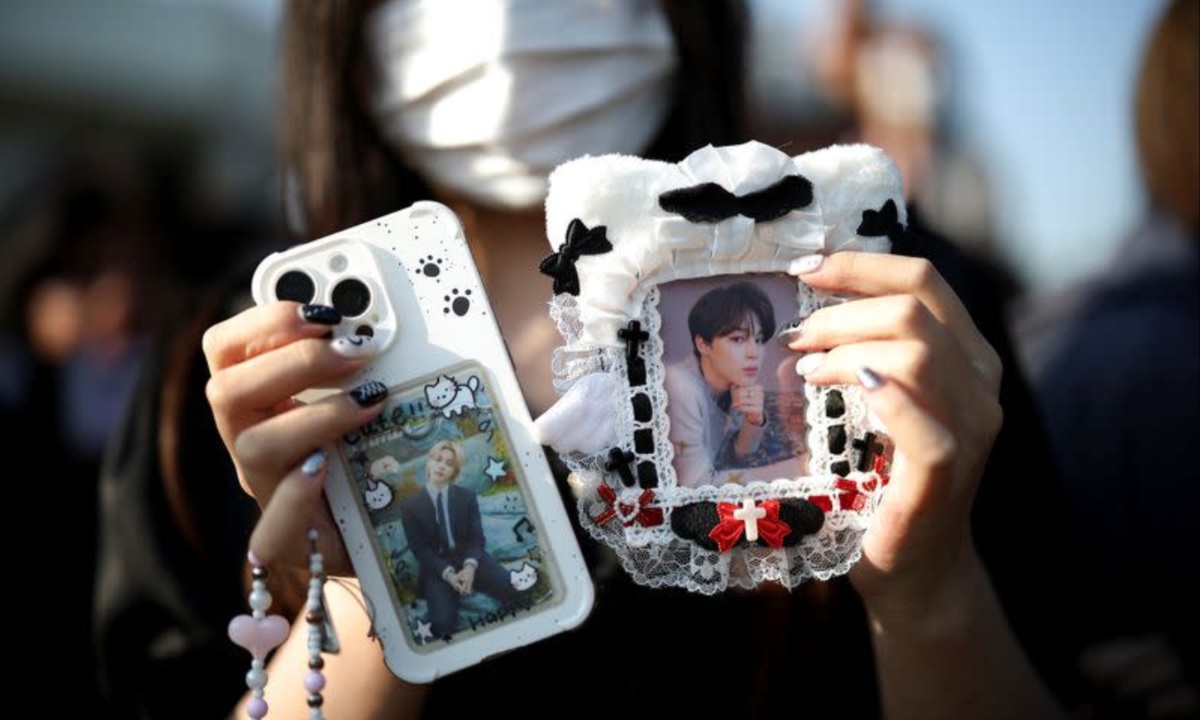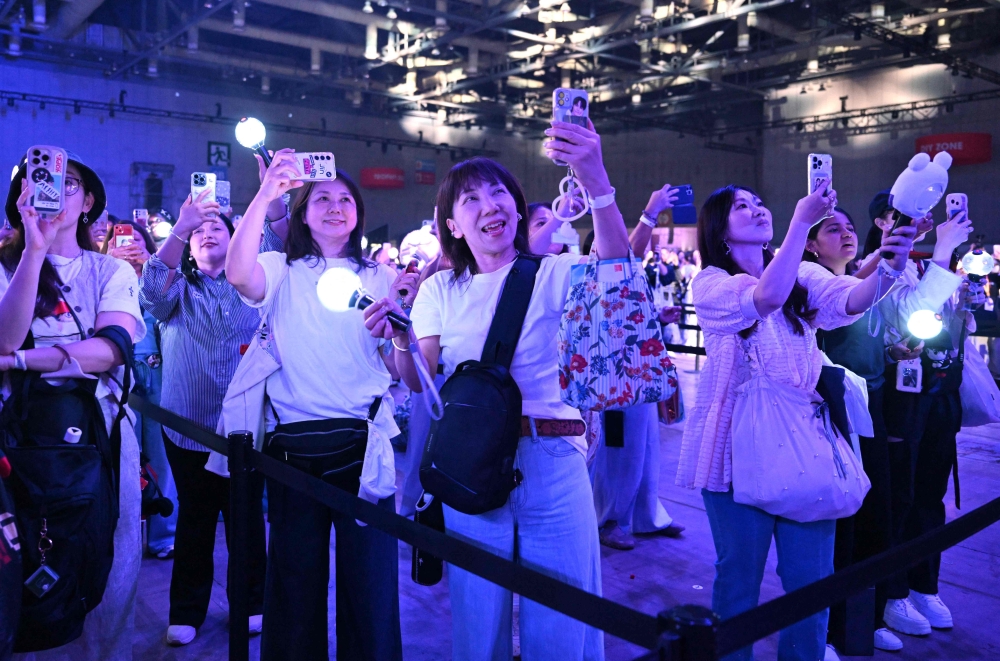Stephanie Prado, a passionate BTS fan, expressed her deep longing for the group during their two-and-a-half-year hiatus, a period shaped largely by mandatory military service for South Korean men. Her devotion to the band led her to move from Brazil to South Korea, where she recently attended the annual “BTS Festa” near Seoul. This year’s event was especially significant as it coincided with the nearing end of BTS’s military obligations, culminating with Suga’s discharge.
The group’s break, which began in 2022 due to military enlistments, occurred during a time of upheaval in the K-pop industry. BTS’s absence left a void in a sector already grappling with declining album sales, rising controversies, and growing concerns about the pressure placed on idols. Industry experts have noted that without BTS, K-pop lost one of its key drivers of momentum.
Global Fans Celebrate BTS Festa as Group Navigates Military Service and Solo Success
Despite no official group reunion being scheduled yet, fans known as the ARMY gathered early for the BTS Festa, coming from around the world. Attendees experienced a mix of joy and emotion, with many brought to tears by listening to voice messages from the members. For fans like Fara Ala, traveling halfway across the globe to be part of this atmosphere was worth it just to feel closer to BTS.

Mandatory military service is often a career setback for male celebrities, but BTS strategically staggered their enlistments to minimize group downtime. Some members, like J-Hope, even launched successful solo ventures during this period. While military service can affect an idol’s youthful charm—a hallmark of K-pop appeal—BTS seems to have retained its widespread fan loyalty and cultural relevance.
BTS Returns Amid K-pop Shifts, Ready to Restore Influence and Global Dominance
While BTS was on hiatus, the K-pop scene evolved with the emergence of fourth and fifth-generation groups. These newer acts have diversified the genre, and some younger fans now view BTS as part of an older generation. However, no new group has managed to fill the iconic role BTS holds globally, and their return could redefine generational boundaries in K-pop fandom.
Beyond BTS’s temporary absence, K-pop has faced broader struggles: declining album sales since 2023, industry scandals, and concerns about artist welfare. Disputes like that involving NewJeans and agency HYBE, as well as growing scrutiny on entertainment company practices, have highlighted systemic issues in the K-pop machine. Analysts suggest BTS’s comeback could bring renewed focus and much-needed stability to the genre.
As the band gradually regroups—with members like RM promising new music soon—fans remain optimistic. However, logistical delays may push a full group album to early next year. For fans like Stephanie Prado, simply knowing BTS is reunited is enough for now. The anticipation of new music and performances is matched by the hope that BTS’s return will reignite both the K-pop industry and global fan enthusiasm.


